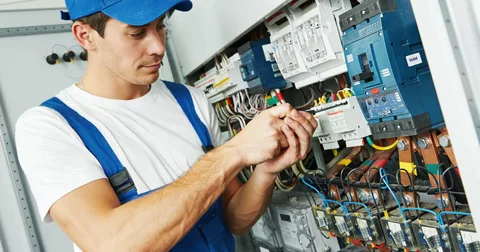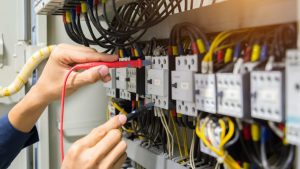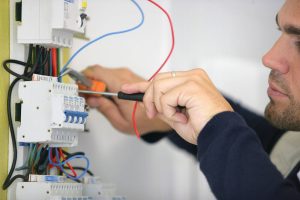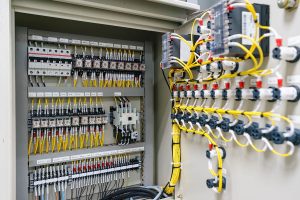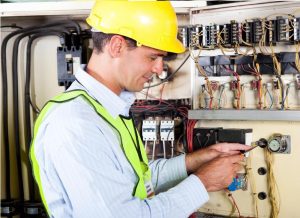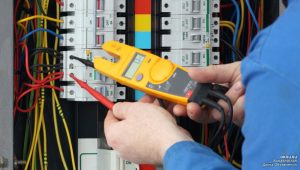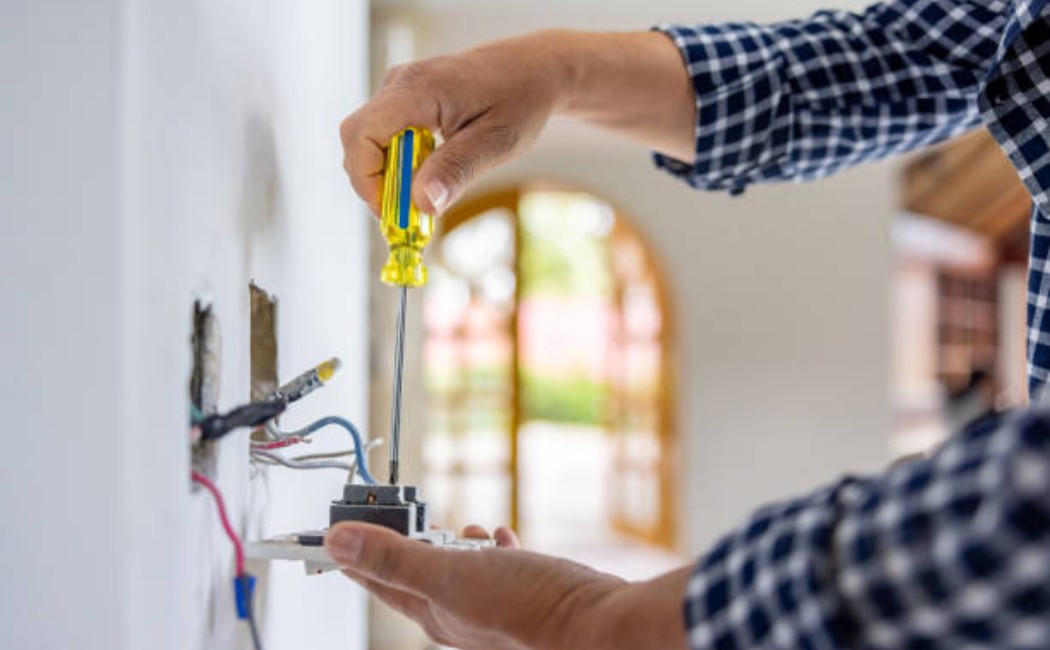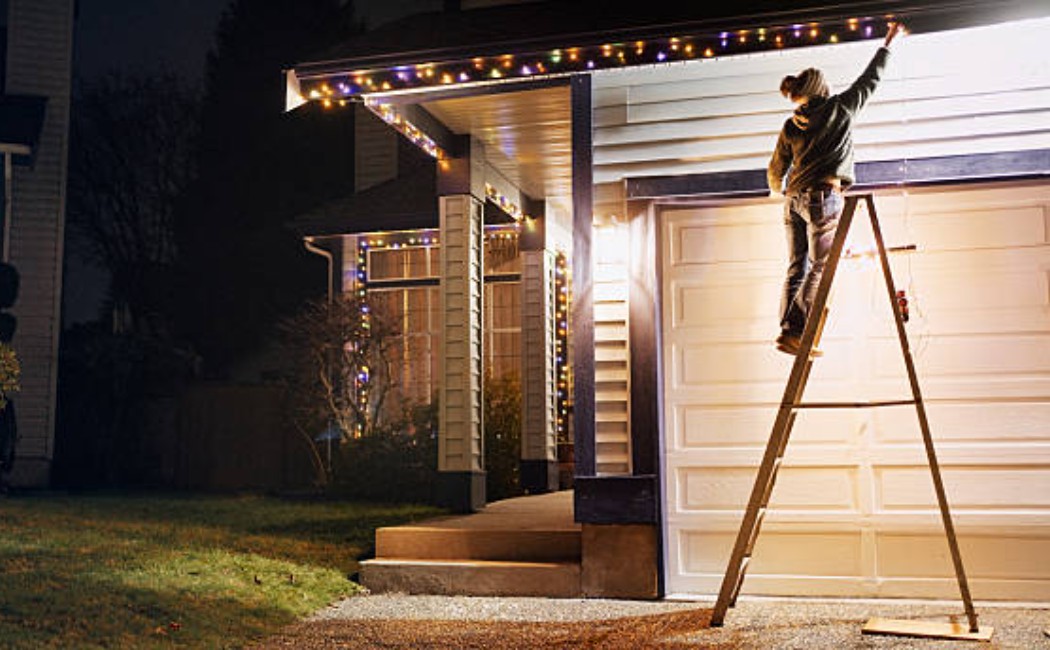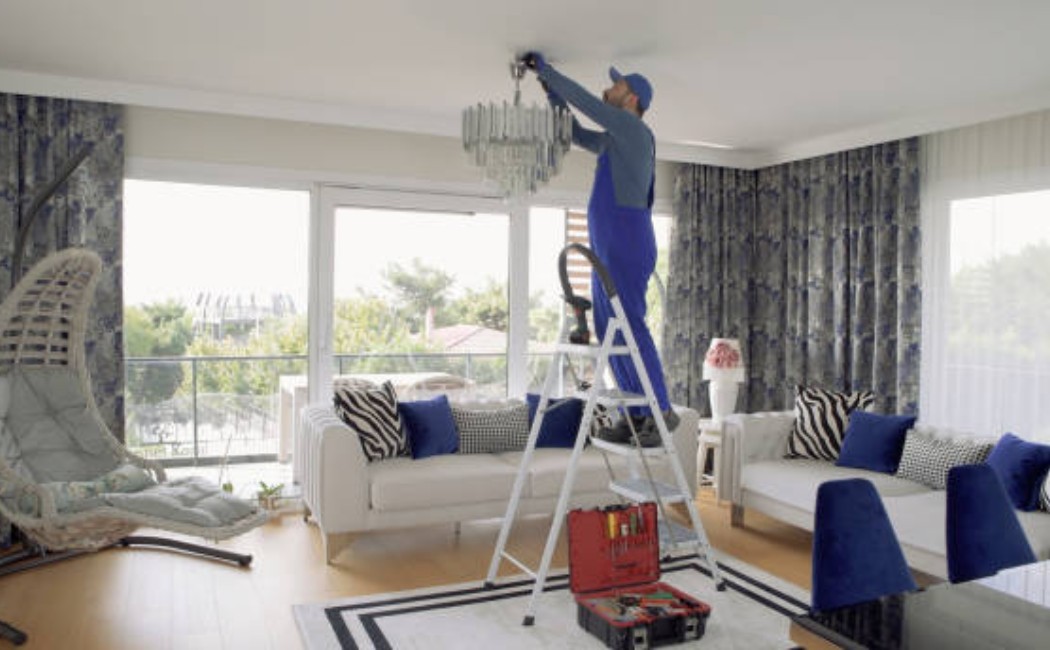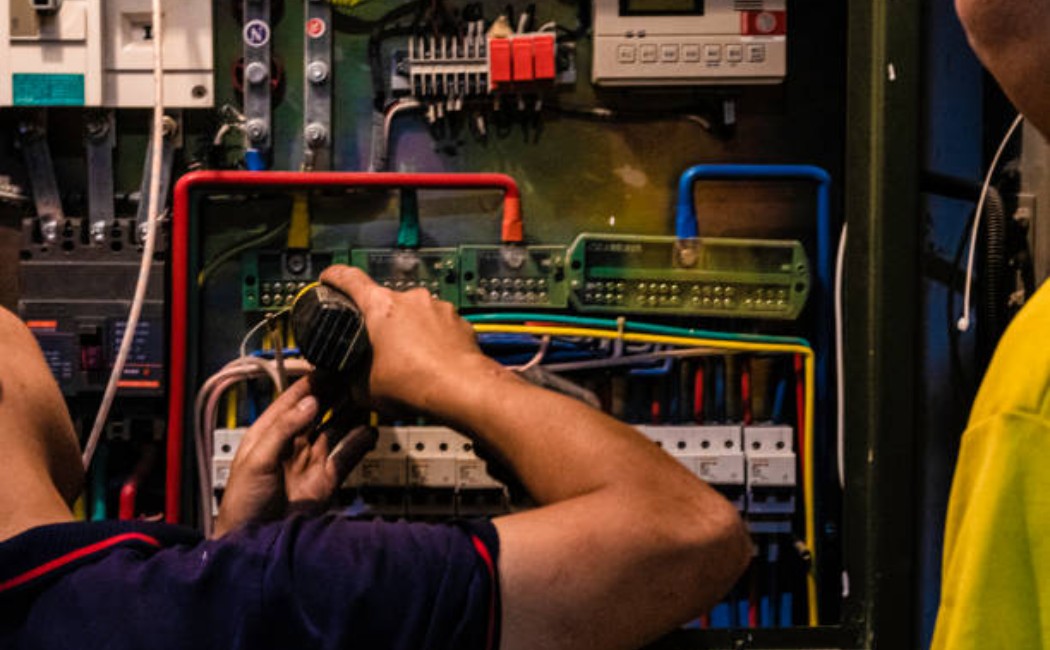Electricity powers almost every aspect of modern life, from lighting homes and workplaces to running essential appliances and equipment. Ensuring that electrical systems are installed correctly, well-maintained, and safe is crucial for preventing hazards such as electrical fires, power failures, and shocks.
This blog provides valuable information into electrical installation, repair, and safety, helping homeowners and business owners understand their electrical needs.
Understanding Electrical Installation
What is Electrical Installation?
Electrical installation involves setting up electrical systems, including wiring, circuit breakers, electrical panels, outlets, and lighting fixtures. A well-planned installation ensures that power is distributed efficiently and safely throughout a building.
Importance of Professional Electrical Work
Electrical work is not a DIY task—it requires skilled electricians who understand the complexity of wiring and safety standards. Improper installations can lead to power failures, short circuits, or even electrical fires.
Types of Electrical Installations
- Residential Electrical Installation – Focuses on wiring homes, installing circuit breakers, and setting up appliances.
- Commercial Electrical Installation – Designed for offices, factories, and other business spaces, often requiring high-power systems.
- Industrial Electrical Installation – Involves complex machinery and heavy-duty wiring to support manufacturing plants.
Residential Electrical Installation
Home Wiring and Electrical Panel Setup
A properly wired home includes an electrical panel that distributes electricity safely across different circuits. Homeowners must ensure that panels are not outdated and that wiring is correctly installed to prevent electrical hazards.
Common Residential Electrical Needs
- Installing new outlets and switches
- Setting up lighting and ceiling fans
- Upgrading electrical panels for better power efficiency
- Installing backup generators for power outages
Safety Considerations for Homes
- Avoid overloading electrical outlets
- Use surge protectors for expensive appliances
- Schedule regular electrical safety inspections
Commercial Electrical Services
Key Electrical Requirements in Commercial Buildings
Businesses require robust electrical systems that support heavy loads. Proper installations ensure energy efficiency, reliability, and compliance with safety regulations.
Upgrading and Maintaining Electrical Systems
Routine maintenance helps businesses prevent downtime and costly repairs. Regular inspections and timely upgrades keep the system running smoothly.
Role of Licensed Electricians in Businesses
Licensed electricians ensure that commercial spaces meet safety codes and function efficiently. Hiring a professional prevents potential hazards and guarantees compliance with industry regulations.
Role of Licensed Electricians
Why Hiring a Licensed Electrician is Crucial?
Licensed electricians have the expertise to handle complex electrical systems safely. They follow strict guidelines to prevent hazards and ensure efficiency.
Understanding Electrician Certifications
- Journeyman Electrician – Can perform standard installations and repairs.
- Master Electrician – More experienced and qualified for complex projects.
- Licensed Electrical Contractor – Authorized to run electrical businesses.
How to Choose the Right Electrician?
- Verify licenses and certifications
- Check reviews and past projects
- Ask for cost estimates and warranties
Electrical Wiring: Components and Best Practices
Understanding Electrical Wiring Basics
Wiring acts as the backbone of an electrical system, transmitting power from the source to different outlets and appliances.
Wiring Types and Their Uses
- Non-Metallic (NM) Cable – Common for residential wiring
- Armored Cable (BX) – Used in commercial buildings
- Underground Feeder (UF) Cable – Designed for outdoor wiring
Signs of Faulty Wiring and When to Replace
- Flickering lights
- Burning smell from outlets
- Frequent circuit breaker trips
Circuit Breaker Repair & Maintenance
Importance of a Properly Working Circuit Breaker
Circuit breakers protect electrical circuits from overloads and short circuits, preventing fires and equipment damage.
Common Circuit Breaker Issues
- Breaker tripping frequently
- A burnt smell from the breaker box
- Buzzing or humming noises from the panel
Steps to Troubleshoot and Repair
- Identify the overloaded circuit
- Reset the breaker switch
- Replace the breaker if it continues tripping
Electrical Panel Upgrade: Why and When to Upgrade?
Signs That You Need an Electrical Panel Upgrade
An outdated or overloaded electrical panel can pose serious risks, including fire hazards and power failures. Signs that indicate the need for an upgrade include:
- Frequent circuit breaker trips
- Dimming or flickering lights
- The panel is more than 20-30 years old
- The presence of fuses instead of circuit breakers
- Burning smell or unusual sounds from the panel
Benefits of Upgrading an Electrical Panel
Upgrading your electrical panel provides several advantages, including:
- Increased safety by reducing fire hazards
- Improved electrical efficiency and reliability
- Ability to support modern appliances and electronics
- Compliance with current electrical codes
- Higher home resale value
How Professionals Upgrade Panels Safely?
Licensed electricians follow a structured process when upgrading an electrical panel:
- Assessing the current panel and electrical load requirements
- Securing necessary permits and following local codes
- Shutting down power and removing the old panel
- Installing the new upgraded panel with proper labeling
- Testing the system to ensure everything is functioning correctly
Home Electrical Maintenance Tips
Regular Maintenance Tasks
Homeowners should perform regular electrical maintenance to prevent major issues:
- Inspect all visible wiring for damage
- Test and reset GFCI outlets monthly
- Check for loose outlets and switches
- Clean and test smoke detectors and carbon monoxide alarms
- Look for overheating signs in outlets and switch plates
Preventing Electrical Issues Before They Occur
- Avoid overloading circuits by distributing appliances properly
- Replace damaged cords and outlets immediately
- Use surge protectors for sensitive electronic devices
- Keep electrical panels and outlets dry and away from moisture
How to Test and Inspect Home Electrical Systems
- Use a voltage tester to check for faulty outlets
- Flip circuit breakers to ensure they operate smoothly
- Schedule professional electrical inspections every few years
Emergency Electrician Services
When to Call an Emergency Electrician
Some electrical problems require immediate attention to avoid serious damage:
- Power outage affecting only your home
- Burning smell from electrical outlets
- Buzzing sounds from the breaker box
- Exposed or damaged wires
- Sparks or small electrical fires
Common Electrical Emergencies at Home and Work
- Short circuits and electrical surges
- Faulty wiring leading to sparks or smoke
- Water damage affecting electrical systems
- Sudden loss of power in critical areas
What to Do While Waiting for an Electrician
- Shut off the main power if safe to do so
- Keep a fire extinguisher nearby in case of sparks
- Avoid touching exposed wires or faulty outlets
- Evacuate the area if there is a risk of fire
Indoor and Outdoor Lighting Installation
Choosing the Right Lighting for Different Areas
- Indoor Lighting: Focus on ambiance, energy efficiency, and task lighting
- Outdoor Lighting: Ensure durability, weather resistance, and security-focused illumination
Safety Tips for Installing Indoor and Outdoor Lighting
- Always turn off power before installation
- Use proper fixtures for wet and dry locations
- Avoid overloading circuits with too many lights
- Install motion sensors for enhanced security
Benefits of Energy-Efficient Lighting Solutions
- Lower electricity bills with LED or CFL bulbs
- Reduced carbon footprint and longer lifespan
- Enhanced brightness and color temperature control
Electrical Troubleshooting Guide
Identifying Common Electrical Issues
- Frequent breaker trips → Overloaded circuits or faulty appliances
- Flickering lights → Loose wiring or faulty light fixtures
- Dead outlets → Tripped GFCI outlets or faulty wiring
DIY Troubleshooting vs. Professional Help
While basic troubleshooting like checking for tripped breakers is safe, major issues require a licensed electrician to prevent hazards.
Tools Needed for Basic Electrical Troubleshooting
- Voltage tester
- Multimeter
- Circuit tester
- Screwdrivers and insulated gloves
Safety Inspections for Electrical Systems
Why Are Safety Inspections Important?
Electrical inspections help prevent hazards by identifying risks early. Regular inspections ensure compliance with electrical codes and keep homes and businesses safe.
What Electricians Check During an Inspection?
- Condition of wiring and circuits
- Proper grounding of electrical systems
- Performance of circuit breakers and panels
- Testing of outlets and GFCI protection
How Often Should You Get an Inspection?
- Every 3-5 years for residential properties
- Annually for commercial and industrial buildings
- Immediately after major renovations or power issues
Best Electrical Safety Practices
Avoiding Electrical Hazards at Home and Work
- Keep electrical cords away from heat sources
- Never use damaged power cords or outlets
- Don’t overload power strips or extension cords
- Install child-proof outlet covers in homes with children
Proper Use of Electrical Appliances
- Unplug appliances when not in use
- Keep electrical devices away from water sources
- Regularly inspect and replace old or faulty appliances
Importance of Ground Fault Circuit Interrupters (GFCIs)
GFCIs protect against electric shocks by shutting off power when a ground fault is detected. They are essential in:
- Bathrooms and kitchens
- Outdoor electrical outlets
- Laundry rooms and basements
Conclusion
Proper electrical installation, repair, and maintenance are essential for the safety and functionality of homes and businesses. Whether upgrading an electrical panel, repairing a circuit breaker, or installing new lighting, hiring a licensed electrician ensures quality work and compliance with safety standards. Regular inspections and preventative maintenance can help avoid major electrical issues, ensuring a safe and efficient electrical system.

